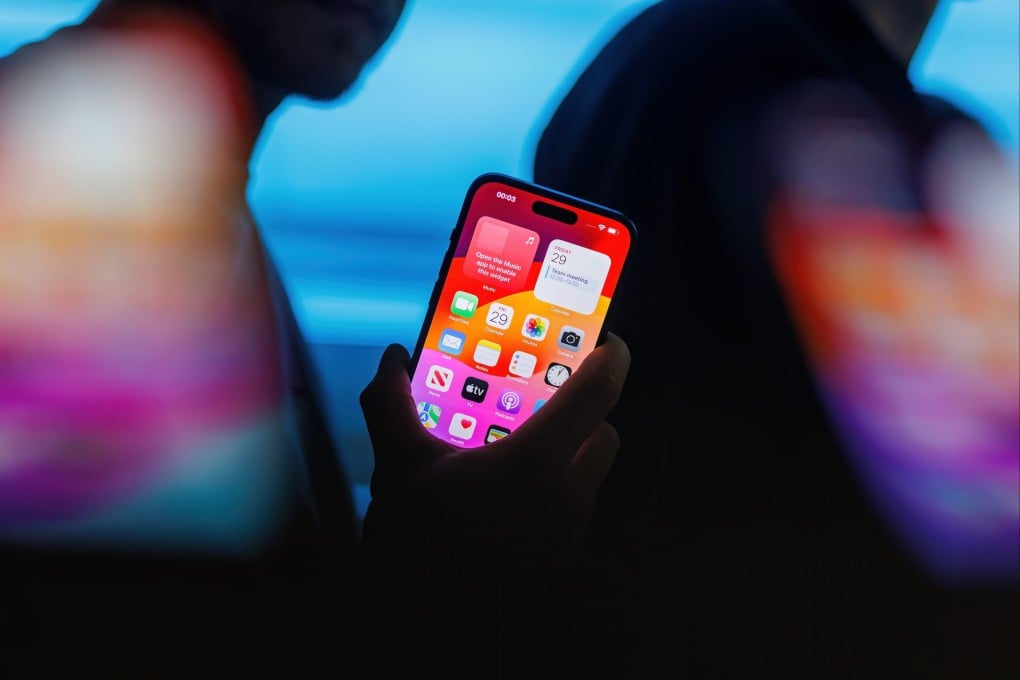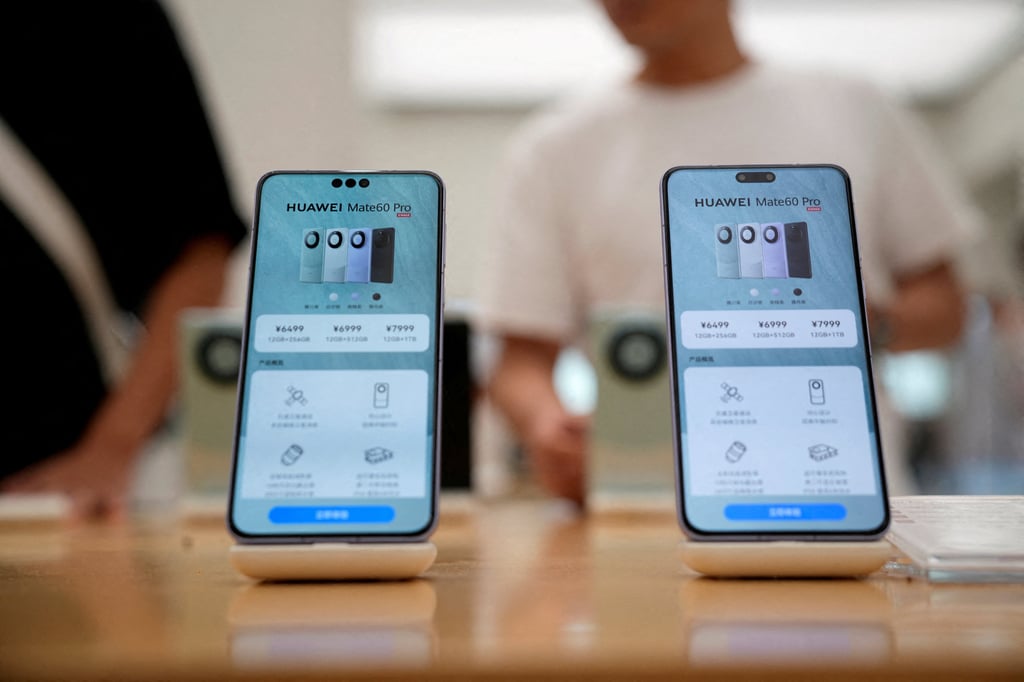Advertisement
Apple gets deeper into China’s smartphone price wars with widening iPhone discounts, but rival Huawei stays above the fray
- Chinese e-commerce giant JD.com on Monday touted discounts of as much as US$112 off on the iPhone 15, higher than Apple’s own local price markdown
- Apple topped global smartphone shipments in 2023 to unseat long-standing market leader Samsung, according to research firm IDC
Reading Time:3 minutes
Why you can trust SCMP
8

Iris Dengin Shenzhen
A price war in mainland China, the world’s largest smartphone market, has intensified amid widening discounts offered for iPhones by online marketplaces, as Apple unseated rival Samsung Electronics in annual industry shipments worldwide for the first time in 2023.
Chinese e-commerce giant JD.com on Monday touted deeper discounts of as much as 800 yuan (US$112.24) off on the latest iPhone 15 model in a post on WeChat, which was on the same day Apple offered to cut prices by up to 500 yuan on a range of models, including the iPhone 13 and its new handsets that debuted last September.
The latest iPhone markdowns have come as major Chinese smartphone vendors, including Xiaomi and Honor, knocked down prices on their various Android models in both online and offline retail campaigns. Huawei Technologies, which last year made a comeback in the 5G smartphone market, did not pursue a similar strategy.
Apple’s atypical discount drive on the mainland shows the US tech giant’s focus to gain ground in the world’s second-biggest economy amid sluggish global iPhone sales, which has seen the company hit by two ratings downgrades in the first week of this year.

“Apple faced more challenges in China compared to the rest of the world,” said Will Wong, senior research manager for client devices at IDC Asia-Pacific. “It not only faced competition from Huawei, but also a change in consumers’ sentiment that is now more cautious in spending.”
In the first week of the year, iPhone sales on the mainland were already down 30 per cent year on year, according to a Jefferies research note published on January 7. The brokerage indicated that there was “a big rise in discounts” for the iPhone 14 and 14 Plus models, while the newer iPhone 15 and 15 Plus models saw “a moderate rise” in discounts.
Advertisement